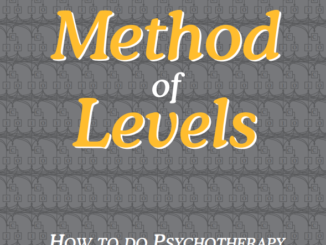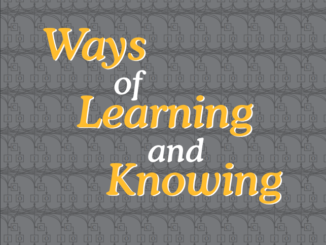Related Articles

Other
Journal on Perceptual Control Theory Vol 1 No 1, 1999
Towards a control model of object recognition R.Young and J. Illingworth

Books
The Method of Levels— How to do Psychotherapy Without Getting in the Way
Timothy A. Carey “I’ve just finished the Method of Levels, and I’m astonished, delighted, and inspired. I was a psychotherapist for many years, using a variety of approaches (predominantly Gestalt Therapy, several versions of family […]

Books
Ways of Learning and Knowing: The Epistemology of Education
Hugh G. Petrie “For most of his career, Hugh was way ahead of his time. His papers in this volume still are. The role of the evolutionary process of blind variation and selective retention in […]
